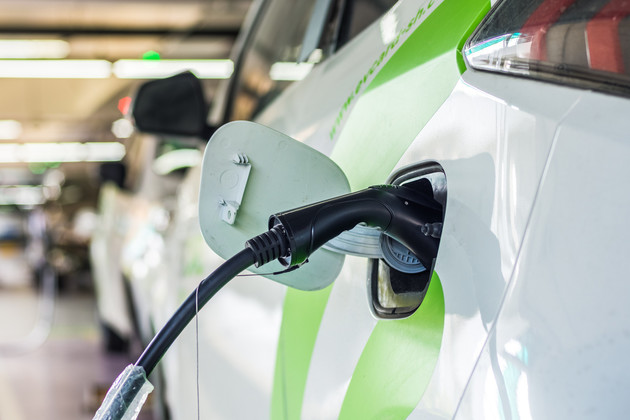
Photo/Shetuwang
Jan. 15 (NBD) -- "It's possible for China to reach 100 percent electrification by 2030, as now a dual model of 'policy + market', rather than the previous one-fold driver of 'policy', is boosting the development of the electric vehicle (EV) sector," Wang Chuanfu, chairman and president of Chinese electric carmaker BYD backed by Warren Buffett.
Wang made the remarks at the conference held by EV think tank China EV100 Saturday, adding that the most important task of developing the EV industry in China is to draw up a timetable for full electrification as soon as possible.
In fact, China has already started the race towards full electrification, joining other countries that are looking to end sale of petrol and diesel vehicles such as the Netherlands, Germany, France and Norway.
The Ministry of Industry and Information Technology announced as early as in September 2017 that the agency started working on a timeline to ban the domestic production and sale of petrol cars, which immediately aroused heated discussion inside the industry.
Last April, Hainan, the resort island of China, became the first province in the country to announce it would phase out sale of fossil-fueled vehicles, marking China's push to promote electric cars.
Wang explained his estimation in two aspects. On the one hand, China has grasped the same-level technologies as world powers in battery, electric motor and electrical control which constitute the three core elements of EVs. On the other hand, many Chinese cities are promoting electrified public buses and taxis, and China boasts rich experience in marketing, application, operation and management of EVs.
For instance, Shenzhen, China's answer to Silicon Valley, has blazed a trail with its transition to electric buses by BYD, according to a report by Singapore-headquartered investment company Temasek.
The city has a fleet of 16,359 all-electric buses and is looking into transitioning its 17,000 taxis to electric power, according to the Temasek report.
Wang's prediction seems valid from the perspective of policy advantage and market demand, but technically speaking, current performance of EVs doesn't get in line with expectations. Although the trend of going green is inevitable, yet advances in EV performance such as mileage and battery charging lag behind the rising consumer demand.
Taking battery charging, a headache for the EV industry, for example, it takes nearly one hour for an electric car to do a full charge, whereas only a few minutes are needed to fill up a fuel tank.
Undeniably, the auto industry is undergoing a reform of electrification. But just like any other reform, it can be fulfilled through unceasing trial and error.
Email: gaohan@nbd.com.cn


 川公网安备 51019002001991号
川公网安备 51019002001991号





